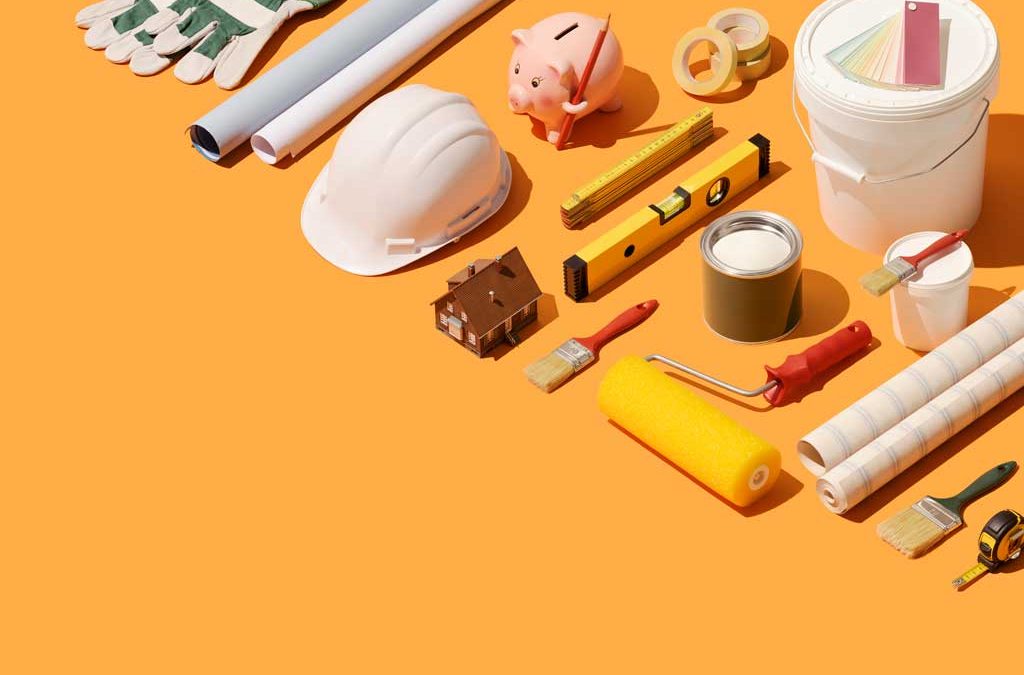VAT domestic reverse charge for construction services
After this month’s introduction of Making Tax for VAT, October 2019 sees further major changes to VAT with the introduction of a domestic reverse charge for the construction industry. The effect will be that the buyer will be responsible for paying the VAT rather than the supplier. This change has been brought about by the increase in missing trader fraud in the construction industry where shell companies are taken over to operate alongside actual construction services. HMRC estimate that the impact of this measure will recover up to £140million per year.
The measure has no effect on individuals, in the regulations referred to as “End Users”as it only affects businesses.
In practice this will mean that suppliers of standard and reduced rates construction services will no longer have the responsibility to collect, and pay to HMRC the VAT on their supplies. Instead the customer will account for the VAT under a reverse charge arrangement. That is, the customer will account for the VAT as if the supply were made to itself. Similar arrangements have been in force when supplies are received from EU member states and for other domestic supplies of mobile phones, computer chips, wholesale gas, electricity and telecommunications and emissions allowances.
The impact of this will be to remove the risk that the supplier doesn’t account for the VAT element of it’s supply to HMRC.
Which supplies will apply?
The list of services covered by this measure is similar to this covered by the Construction Industry Scheme (CIS) and so not only construction services but also alteration or repair of buildings, some electrical and plumbing work and site clearance will be covered. In addition to the way CIS operates, materials will also be subject included in the reverse charge.
The charge applies to the following building and construction services:
- construction, alteration, repair, extension, demolition or dismantling of buildings or structures (whether permanent or not), including offshore installations
- construction, alteration, repair, extension or demolition of any works forming, or to form, part of the land, including (in particular) walls, road-works, power-lines, electronic communications apparatus, aircraft runways, docks and harbours, railways, inland waterways, pipe-lines, reservoirs, water-mains, wells, sewers, industrial plant and installations for purposes of land drainage, coast protection or defence
- installation in any building or structure of systems of heating, lighting, air-conditioning, ventilation, power supply, drainage, sanitation, water supply or fire protection
- internal cleaning of buildings and structures, so far as carried out in the course of their construction, alteration, repair, extension or restoration
- painting or decorating the internal or external surfaces of any building or structure
- services included in the preparation or completion of the list of services above including site clearance, earth moving excavation, tunnelling and boring, laying of foundations, erection of scaffolding, site restoration, landscaping and provision of access roadways.
Which supplies are excluded?
HMRC published the following list of supplies which, if supplied on their own are excluded from the scheme:
- drilling for, or extraction of, oil or natural gas
- extraction (whether by underground or surface working) of minerals and tunnelling or boring, or construction of underground works, for this purpose
- manufacture of building or engineering components or equipment, materials, plant or machinery, or delivery of any of these things to site
- manufacture of components for systems of heating, lighting, air-conditioning, ventilation, power supply, drainage, sanitation, water supply or fire protection, or delivery of any of these things to site
- the professional work of architects or surveyors, or of consultants in building, engineering, interior or exterior decoration or in the laying-out of landscape
- the making, installation and repair of artistic works, being sculptures, murals and other works which are wholly artistic in nature
- sign writing and erecting, installing and repairing signboards and advertisements
- the installation of seating, blinds and shutters
- the installation of security systems, including burglar alarms, closed circuit television and public address systems
Mixed supplies
If there is a mixed supply of included and excluded supplies, then the domestic reverse charge will apply to the whole supply.
How will this affect you?
- You will need to amend your software to ensure that it can accommodate the new domestic reverse charge so that it can be reported directly to HMRC.
- You will need to consider the effect on your cashflow. Currently your customer will pay your invoices inclusive of VAT. You then have the benefit of this cash until payment of your VAT liability is due. This cashflow benefit can be up to 3 months and will from October 2019 cease as your customer will retain the cash.
- Before supplying a customer you will need to ascertain whether they are VAT registered, that the supply falls under the terms of the scheme and whether the customer is an end user.
How can we help you?
James Scott can look at your current construction transactions to identify those that would fall into the new scheme, we can also look into how your software can be adapted to ensure compliance with both MTD and domestic reverse charge rules. If you would like to arrange a meeting to discuss this or any other issues you may have with your business, please use our contact form and we will get in touch.
